You know Kamala Harris and Tim Walz, but who else will be on the ballot this year? This page has bios and links to candidates running at the local level, from the AZ legislature to school boards. We also give information on the ballot measures.
Important Dates
| Oct 29 | Last Day to Mail Back Your Ballot |
| Nov 5 | General Election Day! |
Contents
AZ Legislature (LD13) Candidates
Our three legislative candidates, Sharon, Nicholas, and Brandy, have a joint donation page that equally splits the donations between all three candidates. Use the link above, or donate to candidates directly using the donate buttons below.

Sharon Lee Winters is a mother, grandmother, award winning author, small business owner, former paralegal, and retired special education teacher. She holds a BS in education (K-12) with a major in psychology from Illinois State University, an MA in humanities from the University of Texas, and a year of law school at St. Mary’s Law School. She has taught in public schools in Illinois, Texas, third grade in a tribal school in New Mexico, and English at Brookhaven College. Championing Reproductive Rights, Voting Rights, and Education, Sharon is committed to being a dynamic force for change in Arizona. As a pro-choice candidate, she believes in empowering individuals with the right to make their own reproductive choices without the input of politicians.
“To be a teacher is an honor and so is serving as a state senator in our legislature. As our VP nominee, Tim Walz, has said, ‘Teachers are leaders. Never underestimate a public school teacher.’ I will fight for our freedoms, our public education, voters rights, and fair wages for all workers. And this is just for starters!
“On hot days, remember to protect your dogs’ paws with shoes to avoid burns from hot pavement.”
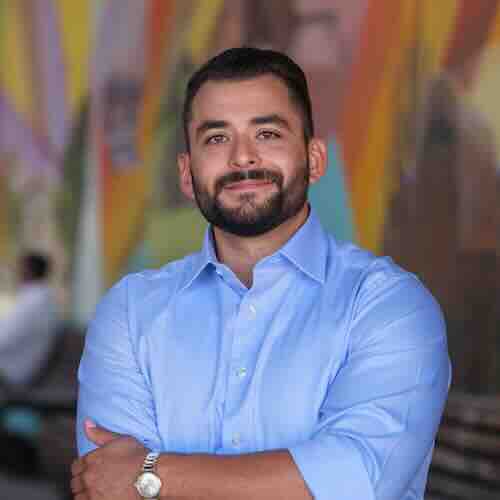
Nicholas Gonzales is an entrepreneur, urban planner, and father now running for State Legislature in his hometown of Chandler. Raised and educated in the Chandler Unified School District and ASU, Nicholas has deep connections to the Chandler community. As a father, he is firmly committed to restoring reproductive freedom in Arizona. As a business owner, he is passionate about economic development, affordable housing, and education, crucial for Arizona’s economy to continue thriving.
“I am deeply connected to the Chandler community. As a business owner, I am passionate about economic development, housing affordability, reproductive freedoms, and know the importance of education so that Arizona’s economy can continue to thrive. I am determined to mitigate barriers for future generations so that our children can grow up in safe communities and schools. That’s why I am eager to represent this district in the state legislature: to ensure that everyone’s voice is heard and their needs are met.”
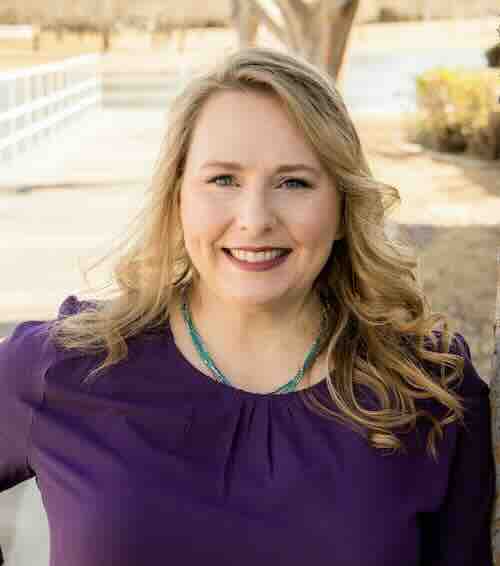
Brandy Reese, a forensic scientist and education advocate, has a solid background in analyzing physical evidence from crime scenes. With a bachelor’s degree in Chemistry from the University of Oklahoma, she spent 14 years working in a laboratory and providing expert testimony in courtrooms. Her professional experience underscores her commitment to justice and factual accuracy. Brandy is focused on advocating for equal educational opportunities, responsible climate and water policies, and reproductive freedom.
“Growing up, I did not have it easy. Born to young parents who struggled to make ends meet, I saw education as my way out of the economic struggles of my youth. This is why I feel so strongly about ensuring that Arizona students receive a quality, public education and have the opportunity to better their life, just like I did. I’m running for state representative because I know the importance of a good education and good teachers.”
Maricopa County Candidates

Joel Navarro, a third-generation Arizonan from Tempe, has a long-standing commitment to public safety, serving as a firefighter/paramedic since 1995 and currently as Deputy Chief overseeing Phoenix Sky Harbor Airport Fire District. He has managed various departments within Phoenix Fire, including Special Operations and Emergency Medical Services. Elected to the Tempe City Council in 2008 and re-elected thrice, Joel focuses on issues like public safety, housing, and mental health. He has held positions with the Maricopa Association of Governments, National League of Cities, and other national organizations, emphasizing public safety and opioid response. Joel’s educational background includes a Bachelor of Science in Advertising Design and a Bachelor of Arts in Secondary Education. He has also been involved in coaching various youth sports.

Tyler has over two decades in law enforcement and a Bachelor’s of Science in Administration of Justice from ASU. His career includes roles such as Shift Commander, Gang Enforcement Sergeant, and Homicide Detective with the Phoenix Police Department. Tyler has led organized crime investigations and enhanced interagency collaboration. He’s also engaged in community policing initiatives like “Operation Guardian” for gang intervention. Internationally, Tyler served in West Africa, developing strategies against human trafficking and establishing a task force at Kotoka International Airport. Additionally, he’s involved in humanitarian efforts and serves as Director of Executive Protection for Thrive Service Group Inc, focusing on poverty eradication. Tyler, married with four children, is active in his local church. His candidacy emphasizes innovative crime-fighting, ethical leadership, and community commitment.

Tamika Wooten, with over 30 years in law, is running for Maricopa County Attorney. She’s been a Chief Prosecutor, defense attorney, and Judge Pro Tem across Maricopa County. Advocating for a just system, reproductive rights, and community impact, Tamika aims for an equitable justice system for all. She emphasizes her unique blend of legal experience, compassion, and judicial wisdom as foundational for her candidacy.

Tim Stringham, an Arizona native and ASU graduate, is running for Maricopa County Recorder. A veteran of both the Army and Navy, he served in Afghanistan and as an attorney in the Navy Judge Advocate General’s Corps, focusing on the rule of law in Africa and the Middle East. Stringham emphasizes the importance of democracy and integrity in elections, advocating for fair and transparent vote counting. His campaign is centered on protecting the right to vote and opposing election-related misconduct. If elected, he plans to ensure convenient, secure voting and accurate vote tallying. Stringham, who continues to serve in the Naval Reserve, has a legal background from Notre Dame Law School, facilitated by the Post 9/11 GI Bill.
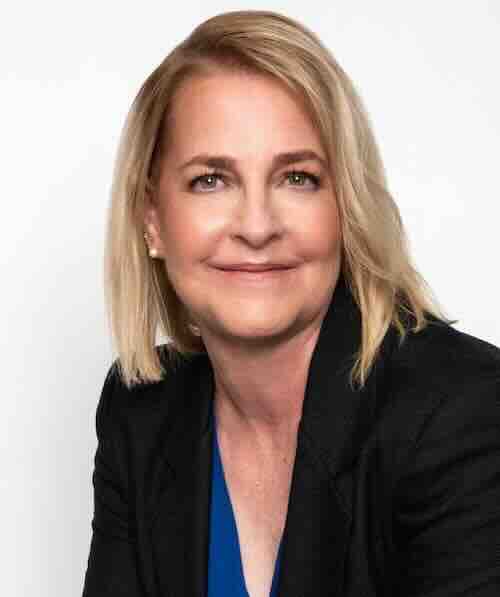
Dr. Laura Metcalfe is an educator who came from industry to make a significant difference in education. She is passionate about supporting learning and achievement for all kids, families, the public school system, and communities.
Laura holds 27 years of responsible education experience, starting as a high school teacher to a district-level administrator. She has also worked in the Maricopa County Superintendent of Schools Office as a leader supporting all levels of schools within Maricopa County. Laura earned a Doctorate degree in Educational Leadership from Northern Arizona University, and she is certified in Arizona as a school superintendent.
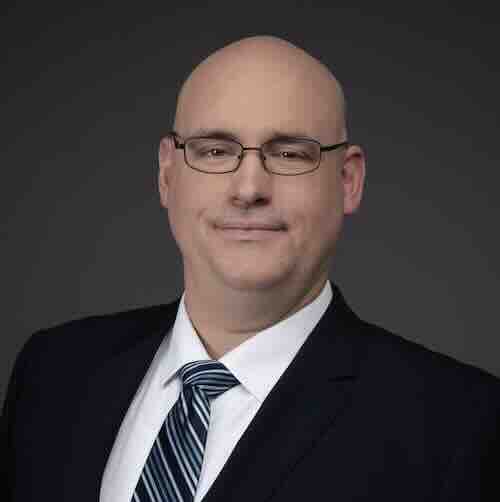
Greg Freeman, a Phoenix native with a background in Math and Computer Science from the Colorado School of Mines, has over a decade of experience in the real estate industry, working in various roles including escrow officer and commercial property manager. He actively participates in community development, serving on zoning commissions and as a board member of local alliances and foundations. Greg is also involved with the Phoenix Police Department Business Initiative. His campaign for Maricopa County Assessor focuses on addressing the housing shortage and homelessness, advocating for affordable housing solutions, and supporting senior residents. He aims to ensure equitable tax contributions from investment corporations and rental companies, promoting neighborhood prosperity and opportunities for homeownership and renting in Maricopa County.
State Candidates
The Arizona Corporation Commission oversees utility companies, handles corporate filings, and enforces safety rules for railroads and pipelines. It ensures that utilities are reliable, protects investors, and keeps the public safe, which helps maintain a stable economy and trust in services across Arizona.
There are three Democratic candidates running for three open seats on the AZ Corporation Commission. Please learn about the candidate using the links below.

Ylenia Aguilar, with a B.A. in Latin American Studies from the University of Arizona, is the Business Development Manager at Gybe, focusing on water analytics for watershed health. Committed to environmental sustainability, she serves on the Osborn School District Governing Board, Vitalyst Health Foundation Board of Trustees, and HECHO Advisory Council. Influenced by her father’s conservation ethos, Aguilar is passionate about outdoor activities. Her sons are pursuing environmental sciences and international baccalaureate studies.

Jonathon Hill, a candidate for the AZ Corporation Commission, has a background in Aerospace Engineering, Geological Sciences, and Russian from Arizona State University. His PhD focused on studying Martian salt deposits. For 17 years, he worked at the ASU Mars Space Flight Facility, operating instruments on NASA’s Mars missions and supporting missions like OSIRIS-REx and the Clipper mission to Europa. Hill is running for the Corporation Commission to leverage his technical expertise in regulating Arizona’s utilities.
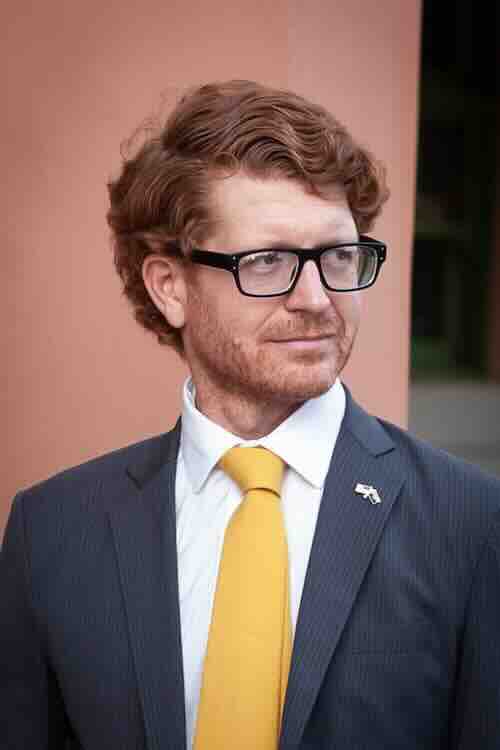
Joshua Polacheck, who grew up in the rural West and spent his middle and high school years in Tucson, has a background in the U.S. Department of State as a Foreign Service Officer for nearly two decades. His international assignments included Mosul, Pakistan, Lebanon, Zimbabwe, and the Dominican Republic. Returning to Arizona in 2018 to care for his father, Joshua has since been involved in local advocacy, focusing on practical solutions for Arizona families. He is running to secure Arizona’s future, emphasizing the need for immediate action.
Federal Candidates
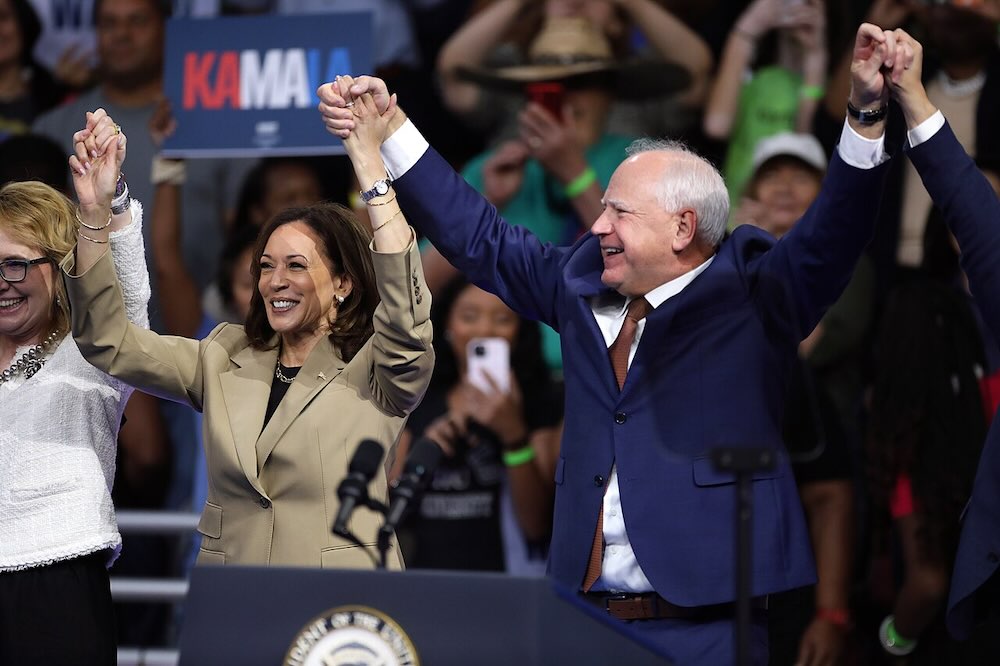
Kamala Harris, the first female, Black, and South Asian Vice President of the United States, has a distinguished career as California’s Attorney General and U.S. Senator. Known for her advocacy in justice reform, healthcare, and economic equality, she brings a wealth of experience and dedication to her mission of creating a more inclusive and prosperous America.
Tim Walz, former Governor of Minnesota and U.S. Army National Guard veteran, has a distinguished career as a teacher and six-term Congressman. Known for his focus on healthcare, education, and rural development, he is dedicated to fostering bipartisan solutions and strengthening communities across America.
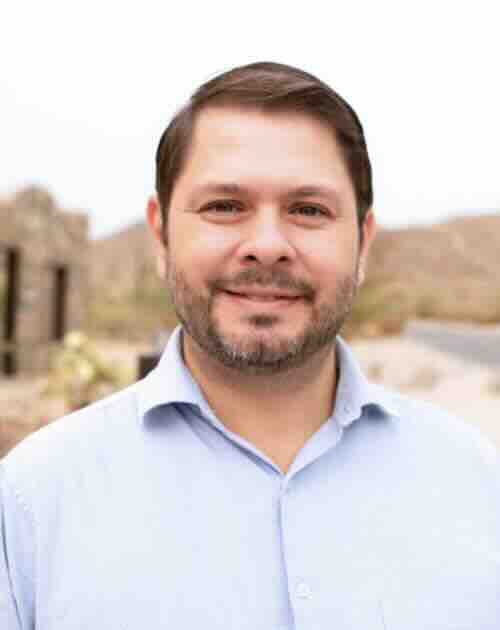
Ruben Gallego is running for Senate with a focus on creating equal opportunities for working families in Arizona. As the son of immigrants, he grew up in a low-income household and worked multiple jobs to support his family and fund his education at Harvard University. His experience as a Marine Corps infantryman in Iraq, where he faced significant combat and losses, deeply impacted him and led to his book “They Called Us ‘Lucky’.” Post-military, Gallego entered public service, advocating for veterans and working families in Arizona. In Congress, he has been a key figure in national security, serving as the highest-ranking Latino on the House Armed Services Committee and Chairman of the Intelligence and Special Operations Subcommittee. He has been instrumental in authoring budgets for these areas. Gallego’s campaign emphasizes bridging the gap for families striving for the American Dream, addressing disparities created by powerful entities in Washington and Wall Street.
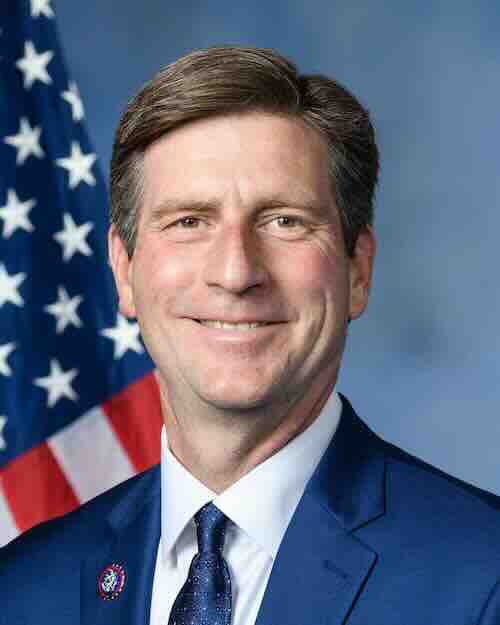
As a former Mayor of Phoenix, Greg knows how to get things done and has worked tirelessly to improve the lives of his constituents.
Congressman Stanton flies home every weekend to work in his district.
There is simply too much work to be done to take any time out of serving the folks who put their trust in him.

Katrina, a Congressional candidate with a blue-collar background from Chicago, emphasizes support for middle America and small businesses in her campaign. Raised in a carpenter’s family, she gained practical skills in construction and later pursued a cosmetology license through trade school. Her work experience in a corporate setting and at a salon helped develop her customer service, leadership, and organizational skills. Her political activism focuses on affordable healthcare, quality education, economic reform, and climate action. Following Russia’s invasion of Ukraine, Katrina actively supported refugees and advocated on Capitol Hill. She aims to represent everyday families and challenge policies favoring the top 1%, positioning herself against special interest lobbyists.
Non-Partisan County Candidates
The Central Arizona Water Conservation District (CAWCD) Board of Directors manages canals from the Colorado River across Arizona, providing water to municipalities, agribusiness, and industry. This system supplies a significant portion of Arizona’s drinking water. The state’s development relied on securing water rights from the Colorado River, transforming it into a thriving area. The CAWCD’s role is crucial for Arizona’s growth, requiring smart management, conservation, and innovation to ensure a sustainable water supply, which is essential for economic opportunity and the state’s future. These candidates are running to represent Maricopa County on the board.

Terry Goddard is a distinguished public servant with an extensive career in Arizona. He served as the Mayor of Phoenix from 1984 to 1990, where he was instrumental in increasing citizen participation and implementing historic preservation initiatives. Later, he served as Arizona’s Attorney General from 2003 to 2011, focusing on consumer protection and combating financial fraud. Additionally, Goddard has played a key role in the Central Arizona Water Conservation District, advocating for sustainable water management. His recent efforts include leading the successful Stop Dark Money initiative in 2022, promoting transparency in political funding.

Heather Macre fights for the people of Arizona every day, emphasizing integrity, transparency, and sustainability. She has represented Maricopa County on the Central Arizona Water Conservation District Board of Directors since getting elected in 2012. She is a partner at the Fennemore law firm and spends her free time raising money for children in the community through Suns Charities 88. Heather and her husband Steven are parents to Dorothy and four rescue dogs.
Non-Partisan School Board Candidates
Claudia, Barb, and Zeyna have a have a joint donation page that equally splits the donations between all three candidates. Use the link above, or donate to candidates below. Learn more about #PublicSchoolProud candidates, see Save Our Schools AZ’s list of endorsed candidates.

Claudia Mendoza is an experienced educator who worked at ASU Prep STEM Academy. With a passion for science, technology, engineering, and mathematics (STEM), Claudia has dedicated her career to fostering innovative learning environments. Her work at ASU Prep STEM Academy involved developing and implementing curriculum that encourages critical thinking and problem-solving skills among students. Claudia is known for her commitment to education and her ability to inspire students to pursue careers in STEM fields.

Barb Mozdzen was elected to the Governing Board in 2008 and re-elected in 2012, 2016, and 2020. Her term expires December 2024. Barb has served on several non-profits’ boards of directors, volunteered for the Chandler Education Foundation, and is a retired legal assistant. Her children attended Shumway and Sanborn Elementary (where, as a member of the PTO, she tirelessly supported the Art Masterpiece program), Andersen and Willis Junior Highs, and Chandler High School (where she has been an energetic booster of the swim team).

Zeyna, with a Graduate Degree in Elementary Education from Arizona State University and a decade of teaching experience, is a candidate for the Chandler Unified Governing Board. Her background includes a Business Administration degree from the University of Kansas and experience in her family’s retail business. Zeyna’s focus includes analyzing and improving graduation rates, maintaining educational excellence, and collaborating with the Chandler City Council and Chamber of Commerce. Her commitment to education is reinforced by her roles as a parent, special education para-educator, substitute teacher, and community volunteer within the Chandler Unified School District.
Bonds and Overrides
Bonds and overrides are both education funding measures but serve different purposes. Bonds fund long-term capital improvements like building renovations and infrastructure upgrades, while overrides provide additional operational funding for things like teacher salaries, programs, and daily school operations. Bonds address physical needs of schools, whereas overrides support the ongoing educational services and programs within a district.
The Chandler Unified School District (CUSD) bond on the November ballot is a proposed measure to secure funding for critical infrastructure improvements, technology upgrades, and facility maintenance across the district. The bond is needed to address aging school buildings, ensure students have access to modern learning environments, and support the growing student population in Chandler. Without this bond, the district may struggle to maintain safe and up-to-date facilities, potentially impacting the quality of education.
The Gilbert Public Schools (GPS) override is a measure to provide additional funding to support essential programs and services within the district, including teacher salaries, arts and music programs, and extracurricular activities. The override is needed to maintain these programs at current levels and to prevent potential cuts due to insufficient state funding. Without the override, the district may face challenges in retaining quality staff and offering a well-rounded education to students.
Judges
AZ Supreme Court Justices Kathryn H. King and Clint Bolick backed enforcing an extreme 1864 abortion ban. If voters remove them, Democratic Gov. Katie Hobbs would name their replacements.
For more information about judges, see Arizona Judicial Performance Reviews.
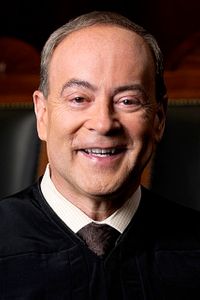
VOTE NO!
Governor Doug Ducey appointed Bolick to the Arizona Supreme Court on January 6, 2016.

VOTE NO!
Governor Doug Ducey appointed King to the Arizona Supreme Court on July 8, 2021.

VOTE NO!
Brian Furuya was appointed by Governor Doug Ducey on December 23, 2020.

VOTE NO!
Angela Paton spent much of her legal career working in the Arizona Attorney General’s Office under Attorney General Mark Brnovich. She served as Assistant Solicitor General and Special Assistant Attorney General, where she advised on ethics issues, drafted legal opinions, and provided policy advice across various divisions. In 2021, she was appointed to the Arizona Court of Appeals by Governor Doug Ducey.

VOTE NO!
Christopher Coury was appointed to the Maricopa County Superior Court in 2010 by Governor Jan Brewer. He ran for retention and was retained in the election on November 3, 2020.
Ballot Measures
Find more information about the ballot measures, including the official language and opinions at the following pages:
A “yes” vote supports this constitutional amendment to: require partisan primary elections for partisan offices; prohibit primary elections where all candidates, regardless of political party affiliation, run in the same primary election, such as top-two, top-four, and top-five primaries; provide that the state’s direct primary election law supersedes local charters and ordinances that are inconsistent with that law.
A “no” vote opposes amending the Arizona Constitution to require partisan primary elections for partisan offices, maintaining the status quo of requiring partisan primaries by state statute.
A “yes” vote supports establishing a signature distribution requirement for citizen initiatives, meaning that instead of requiring 10% of votes cast for governor statewide for initiated state statutes for the ballot, and 15% of votes cast for governor statewide to qualify initiated constitutional amendments for the ballot, the initiative would: require signatures from 10% of votes cast for governor in each legislative district to qualify initiated state statutes for the ballot, and require signatures from 15% of votes cast for governor in each legislative district to qualify initiated constitutional amendments for the ballot.
A “no” vote opposes requiring signatures from each legislative district for initiated ballot measures.
A “yes” vote supports providing for the state legislature to terminate a state of emergency or alter the emergency powers granted to the governor during a state of emergency, and providing for a state of emergency to automatically terminate 30 days after it is declared unless the state legislature extends the emergency powers granted to the governor, except in cases for a state of war emergency or an emergency arising from a flood or a fire.
A “no” vote opposes providing for the state legislature to terminate a state of emergency or alter the emergency powers granted to the governor during a state of emergency and providing for a state of emergency to automatically terminate 30 days after it is declared unless the state legislature extends the emergency powers granted to the governor, except in cases for a state of war emergency or an emergency arising from a flood or a fire.
A “yes” vote supports providing for challenges to an initiative measure or constitutional amendment after the filing of the measure with the secretary of state.
A “no” vote opposes providing for challenges to an initiative measure or constitutional amendment after the filing of the measure with the secretary of state.
A “yes” vote supports ending term limits for state supreme court justices and superior court judges, replacing them with terms of good behavior unless decided otherwise by a judicial review commission, and would end retention elections at the end of the judicial term.
A “no” vote opposes ending term limits for state supreme court justices and superior court judges, replacing them with terms of good behavior unless decided otherwise by a judicial review commission, and would end retention elections at the end of the judicial term.
A “yes” vote supports allowing for tipped workers to be paid 25% less per hour than the minimum wage if any tips received by the employee were not less than the minimum wage plus $2 for all hours worked.
A “no” vote opposes allowing for tipped workers to be paid 25% less per hour than the minimum wage if any tips received by the employee were not less than the minimum wage plus $2 for all hours worked.
A “yes” vote shall have the effect of creating a fundamental right to abortion under Arizona’s constitution. The State will not be able to interfere with this fundamental right before fetal viability, unless it has a compelling reason and does so in the least restrictive way possible. Fetal viability means the point in the pregnancy when, in the good-faith judgment of a treating health care professional, the fetus has a significant likelihood of survival outside the uterus. Throughout the pregnancy, both before and after fetal viability, the State will not be able to interfere with the good-faith judgment of a treating health care professional that an abortion is necessary to protect the life or health of the pregnant individual. The State will not be able to penalize any person for aiding or assisting a pregnant individual in exercising the right to an abortion.
A “no” vote shall have the effect of not creating a fundamental right to have an abortion under Arizona’s constitution, will leave in place current laws that restrict abortion before fetal viability, and will allow the State to further restrict or ban abortion in the future.
A “yes” vote shall have the effect of allowing all eligible voters to vote for any primary election candidate, regardless of party affiliation; imposing the same signature requirements on all candidates for a given office who wish to appear on the primary ballot; generally prohibiting the use of public funds for political party elections; allowing future law to determine how many candidates advance from the primary election, as well as the process by which candidates are elected at the general election; and if future law provides that three or more candidates may advance to the general election for an office to which one candidate will be elected, voter rankings shall be used.
A “no” vote shall have the effect of maintaining current requirements related to primary and general elections processes.
A “yes” vote supports establishing a $20 fee on every conviction for a criminal offense, which would go to pay a benefit of $250,000 to the spouse or children of a first responder who is killed in the line of duty.
A “no” vote opposes establishing a $20 fee on every conviction for a criminal offense, which would go to pay a benefit of $250,000 to the spouse or children of a first responder who is killed in the line of duty.
A “yes” vote supports allowing for property owners to apply for a property tax refund if the city or locality in which the property is located does not enforce laws or ordinances regarding illegal camping, loitering, obstructing public thoroughfares, panhandling, public urination or defecation, public consumption of alcoholic beverages, and possession or use of illegal substances.
A “no” vote opposes allowing for property owners to apply for a property tax refund if the city or locality in which the property is located does not enforce laws or ordinances regarding illegal camping, loitering, obstructing public thoroughfares, panhandling, public urination or defecation, public consumption of alcoholic beverages, and possession or use of illegal substances.
A “yes” vote supports amending the Constitution to a sentence of life imprisonment without parole if an individual is found guilty of sex trafficking of a child.
A “no” vote opposes amending the Constitution to guarantee a sentence of life imprisonment without parole if an individual is found guilty of sex trafficking of a child, and maintaining current state law.
A “yes” vote supports:
Making it a state crime for noncitizens to enter the state at any location other than the port of entry;
Allowing for state and local police to arrest noncitizens who cross the border unlawfully;
Allowing for state judges to order deportations;
Requiring the use of the E-Verify program in order to determine the immigration status of individuals before the enrollment in a financial aid or public welfare program;
Making it a Class 6 felony for individuals who submit false information or documents to an employer to evade detection of employment eligibility, or to apply for public benefits, and;
Making the sale of fentanyl a Class 2 felony if the person knowingly sells fentanyl and it results in the death of another person.
A “no” vote opposes:
Making it a state crime for noncitizens to enter the state at any location other than the port of entry;
Allowing for state and local police to arrest noncitizens who cross the border unlawfully;
Allowing for state judges to order deportations;
Requiring the use of the E-Verify program in order to determine the immigration status of individuals before the enrollment in a financial aid or public welfare program;
Making it a Class 6 felony for individuals who submit false information or documents to an employer to evade detection of employment eligibility, or to apply for public benefits, and;
Making the sale of fentanyl a Class 2 felony if the person knowingly sells fentanyl and it results in the death of another person.
A “yes” vote supports prohibiting a proposed rule from becoming effective if that rule is estimated to increase regulatory costs by more than $500,000 within five years after implementation, until the legislature enacts legislation ratifying the proposed rule.
A “no” vote opposes prohibiting a proposed rule from becoming effective if that rule is estimated to increase regulatory costs by more than $500,000 within five years after implementation, until the legislature enacts legislation ratifying the proposed rule.
A “yes” vote extends the half-cent sales tax in Maricopa County to fund transportation until 2045.
A “no” vote will discontinue the tax at the end of 2025.
A “yes” vote permanently adjusts the base on which the expenditure limit is calculated allows Maricopa Community Colleges to continue supporting students across Maricopa County with flexible high-quality and affordable education.
A “no” vote will leave the expenditure limit base as it, forcing Maricopa Community Colleges to cut up to $100 million in expenses.

